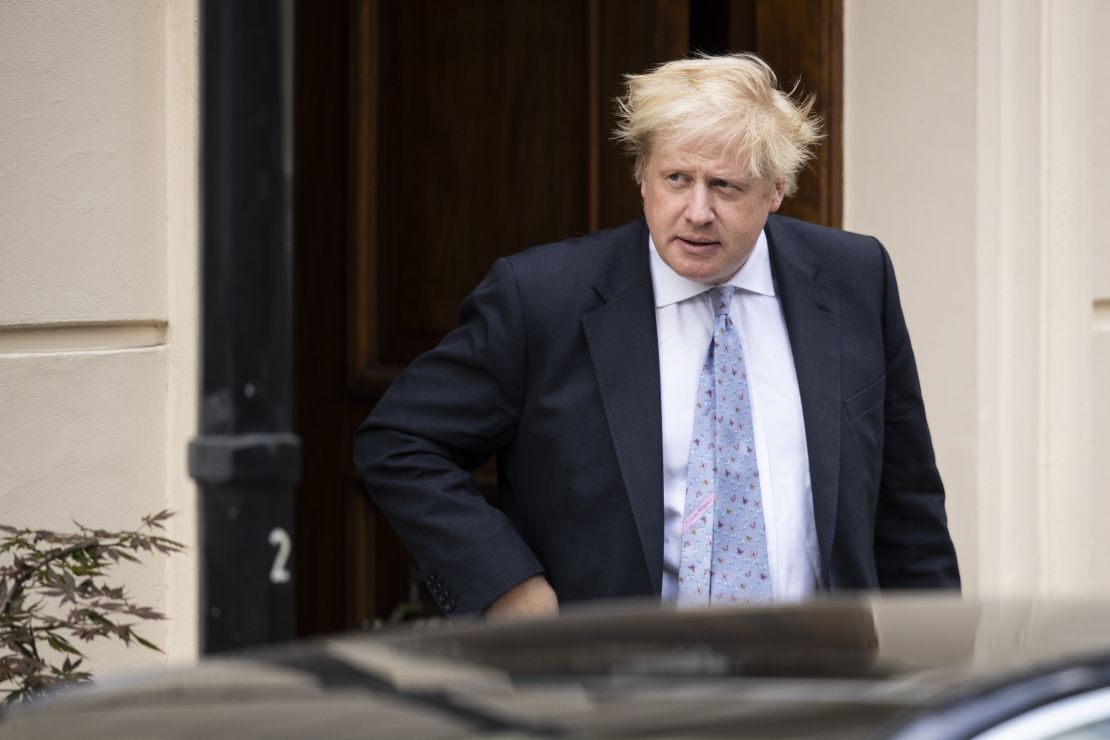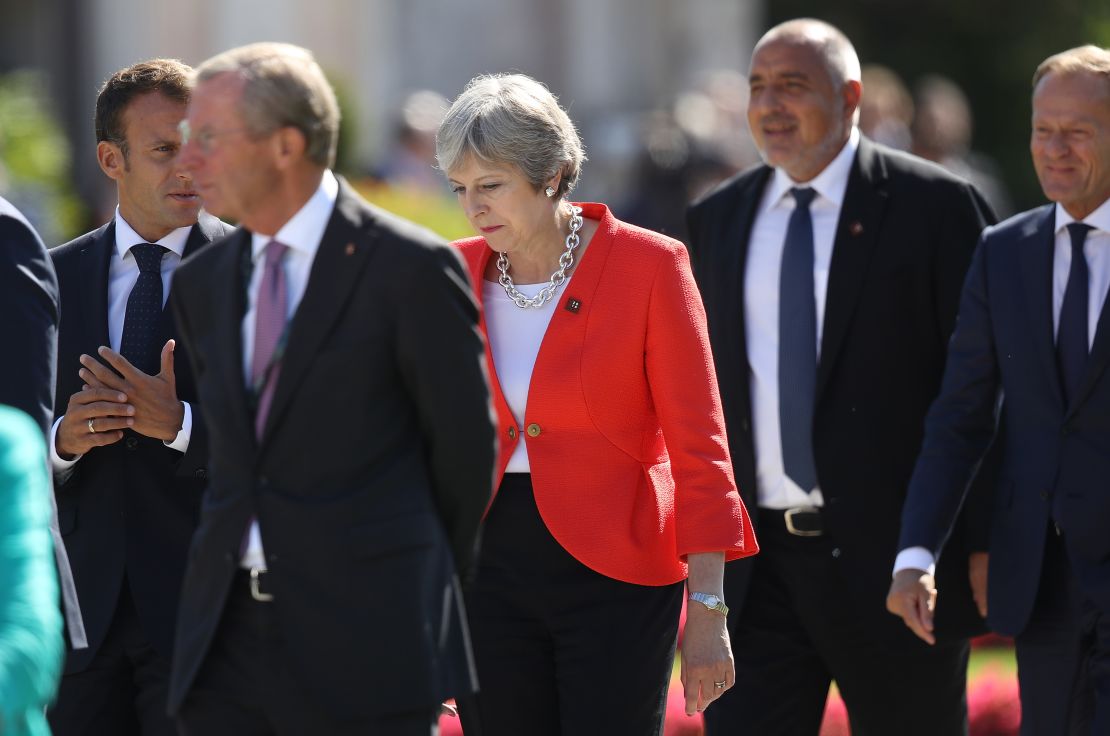Buried beneath the epicenter of the Brexit earthquake lies a fault plane that is far too often ignored. Too many of the interested parties fail to understand one another’s priorities.
This week, Brexit watchers could be forgiven for being confused, as the narrative emerging out of Brussels swung from one extreme to another.
Somehow, we went from British Prime Minister Theresa May having 48 hours to “save Brexit” and Donald Tusk, the President of the European Council, saying that no deal was more likely than ever, to everything sounding much rosier.
Why all the drama?
In short: the EU and UK negotiating teams might agree on much. But Brexit’s outcome will ultimately be determined by people who are not sitting at the negotiating table. And it’s these people who need to be convinced that what is agreed by their negotiators in Brussels is in their best interest.
This has created an atmosphere that has caused the differing factions to not understand one another.
In the UK, hardline Brexiteers in May’s own Conservative Party and Northern Ireland’s Democratic Unionist Party – which props up her government – are tearing their hair out over the thorniest issue yet to be resolved.
As things stand, a no-deal Brexit could result in the return of a hard border between Northern Ireland, which is part of the UK, and the Republic of Ireland, which remains in the EU.
This means that after Brexit, the two countries would be subject to different customs arrangements. That, in turn, would mean the return of infrastructure and possibly even personnel to check border crossings. This, Irish politicians fear, could escalate tensions and slowly raise the need for security to be in place.
History suggests that avoiding such a border on the island of Ireland is a sensible idea, and both the EU and UK are committed to exactly that. No one wants to see troops back on the Irish border two decades after the end of the Troubles, in which more than 3,600 people died.
The status quo that has held for 20 years allows Northern Irish Republicans to embrace their Irish identity while being a resident of the UK. This, in turn, has led to many who once longed for a united Ireland feeling satisfied enough to drop these demands.
The EU sounds ready to accept May’s proposal this week that the “transition period” – which would see the entire UK effectively remaining part of the EU’s single market and Customs Union until 2020 – be extended in order to find a better, permanent arrangement.
British Conservative Brexiteers are, it’s fair to say, not tremendously jazzed by this. It would leave Britain unable to implement any independent trade deals, and would also mean London continuing to send vast sums to the EU.
Here, we come back to the lack of understanding between the camps.
It is sometimes suggested that the drama and chaos helps May’s hardline backbenchers realize that dealing with the EU is hard.

“A deal is within reach and remains far more likely than not, but the UK Government may need it to go down to the wire so the Prime Minister can sell it back home,” one EU insider explained to me.
This is in reference to the “meaningful vote” on the exit deal promised to the UK Parliament, which it is far from certain May will win.
Prominent figures in her party, including her former Foreign Secretary, Boris Johnson, have publicly called on May to “chuck Chequers,” the deal thrashed out by May with her Cabinet that prompted the resignations of her Brexit Secretary David Davis and Foreign Secretary Boris Johnson.
The theatrics of this week will not have won over anyone skeptical of her approach up until this point.
“Why would she do that? We will have conceded the extra year in return for what? There is still a backstop, we will have to pay billions more and we have no agreement on the future relationship,” said Iain Duncan Smith, a former Conservative Party leader.
Next, some people in the UK believe – to varying degrees – that key European leaders want the deal done and will eventually push Michel Barnier, the EU’s chief negotiator, to agree a deal close to the UK’s terms.
“We remain confident that we will get a good deal, a deal based on our Brexit White Paper,” a senior British government source told me earlier this week.
Then there are others in the UK, typically harder-line Brexit supporters, who think the government could be far firmer with the EU. Former Brexit Secretary, David Davis, claimed before the referendum that CEOs would be “knocking down Chancellor Merkel’s door, demanding access to the British market.”
However, in Brussels, many believe that the UK’s need for a trade deal with the EU is so great that Barnier will continue to call all the shots.
As Georgina Wright, a researcher specializing in Brexit at independent foreign affairs think tank Chatham House, told CNN: “It’s not that they expect to shove a deal down the UK’s throat. Rather, they are skilled negotiators who know that compromise and negotiating the future shouldn’t take place now. Reveal your cards too early and you lose meat in the game.”
Which brings us back to Ireland. Many on the harder end of Brexit believe that Ireland is being used as a bargaining chip by the EU. They think that the EU’s 11th largest economy is less important to the negotiators than the economic concerns of say Germany and France (1st and 3rd, respectively).
But ever since June 24, 2016, the day after the Brexit referendum, Ireland has made it clear to its fellow member states that the prospect of a hard border is a red line. The EU has been consistent, not only out of a matter of alliance, but also out of a matter of principle, that nothing should undermine the integrity of the EU’s single market or the Union as a whole.
According to Agata Gostyńska-Jakubowska, a senior research fellow at the Centre for European Reform, the Brexit talks “have revealed that the British have limited understanding of how the EU operates. Some in the UK still tend to think that the EU would bend backwards and offer the UK a sweet deal if only the British negotiators knew how to properly exert pressure on the EU 27… Any attempt to go against strategic objectives of one of their own for the sake of reaching a deal with the UK would severely damage the EU’s credibility in the eyes of its own members.”
Conversely, some also think that a border between mainland Britain and Northern Ireland, effectively in the Irish Sea, would be acceptable.
For their part, the EU has fundamentally misread how ready the Conservative rebels and the DUP are to fight off having a version of Brexit that they don’t want imposed on them.
Matthew Holehouse, a senior correspondent at the global newswire MLex, explains: “The UK privately complains that the EU does not fully appreciate the unionist dimension to Northern Irish politics and the peace settlement. And some in Brussels admit they struggle to read the DUP, how they’ll respond to a deal or where their red lines really lie.”
Which is strange, as the DUP has been consistent in what it wants from a final deal. As Emma Little-Pengelly, one of its parliamentarians in London told me: “We’ve tried to be as clear as possible. We want a sensible Brexit, one that works for people and for business. That must include no hard border, we don’t think there is a need for one.”

While it remains unclear how many would actually contemplate voting against their Prime Minister, even loyal Brexit-supporting moderates respond to the question “can she get this through Parliament” with a tentative, “we’ll see,” while harder-line Conservatives give a blunt “no.”
And as far as the DUP is concerned, Little-Pengelly added: “We will not support a bad deal for Northern Ireland and we will not support a bad deal for the UK. We will come to a judgement on whether what is put in front of us is a bad deal. If it is, we will not support it.”
And in the middle of all this stands May: a leader trying to walk the narrowest of paths and find a deal that satisfies everyone. She seems confident her Chequers plan is close enough.
So confident that her Brexit Secretary, Dominic Raab, on Thursday published a letter to MPs, proposing that the “meaningful vote” would in fact be a binary choice between her deal or no deal.
But speculation that she can even survive that long continues to grow. May will have been disappointed to arrive home from Brussels to read an interview with one of her MPs describing the government as a “s*** show.”
When, if, that day comes, all hell could break loose. The opposition Labour Party will likely vote down her deal in an attempt to topple the Government, trigger an election and, possibly, a second referendum.
Some Labour MPs will rebel, and vote with the government; some Conservative MPs will rebel against the government. And in the Commons, you have to walk physically into a division lobby with your side: a brutally public exercise.
And let it not be forgotten that this is still just about the initial divorce, not the future relationship between the UK and EU.
In that respect, UK’s future fate remains up in the air. So as one of the bloodiest chapters in British politics comes crawling to an end, a new one, perhaps even more fatal for the career of the Prime Minister herself, begins.

















